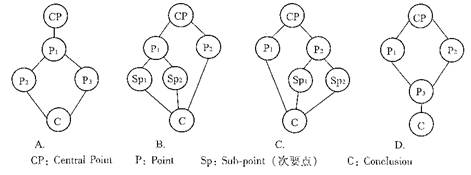题目内容
We can no longer to consider water an almost free resource that we can use as much as we like.
A.permit B.afford C.expect D.offer
B

We can no longer ____to consider water an almost free resource that we can use as much as we like.
| A.permit | B.afford | C.expect | D.offer |
Humanity uses a little less than half the water available worldwide. Yet occurrences of shortages and droughts (干旱) are causing famine and distress in some areas, and industrial and agricultural by-products are polluting water supplies. Since the world’s population is expected to double in the next 50 years, many experts think we are on the edge of a widespread water crisis.
But that doesn’t have to be the outcome. Water shortages do not have to trouble the world---if we start valuing water more than we did in the past. Just as we began to appreciate petroleum more after the 1970s oil crises, today we must start looking at water from a fresh economic perspective. We can no longer afford to consider water a virtually free resource of which we can use as much as we like in any way we want.
Instead, for all uses except the domestic demand of the poor, governments should price water to reflect its actual value. This means charging a fee for the water itself as well as for the supply costs.
Governments should also protect this resource by providing water in more economically and environmentally sound (健康的) ways. For example, often the cheapest way to provide irrigation water in the dry tropics is through small-scale projects, such as gathering rainfall in depressions (凹地) and pumping it to nearby cropland.
No matter what steps governments take to provide water more efficiently, they must change their institutional and legal approaches to water use. Rather than spread control among hundreds or even thousands of local, regional, and national agencies that watch various aspects of water use, countries should set up central authorities to coordinate (调整) water policy.
【小题1】What is the real cause of the potentials water crisis.
| A.Only half of the world’s water can be used. |
| B.The world population is increasing faster and faster. |
| C.Half of the world’s water resources have been seriously polluted. |
| D.Humanity has not placed enough value on water resources. |
| A.is already serious in certain parts of the world. |
| B.has been exaggerated by some experts in the field |
| C.poses a challenge to the technology of building reservoirs(水库) |
| D.is underestimated by government organizations at different levels |
| A.be reduced to the minimum | B.stimulate domestic demand |
| C.go with its real value | D.take into account the occurrences of droughts |
| A.guarantee full protection of the environment |
| B.centralize the management of water resources |
| C.increase the sense of responsibility of agencies at all levels |
| D.encourage local and regional water resources |
The early lack of exposure to science ,technology,engineering and mathematics (STEM) can be harmful to achieving gender (性别)balance in these fields. It begins when we are young and continues throughout our time in high school.
While at home,girls generally don’t get to experience the level of exposure or encouragement in STEM fields that their male counterparts do. It is often subtle ,but it’s the first hurdle that faces and confuses so many women. Boys ,on the other hand, get on their path ,and are encouraged to do so, generally earlier than girls. For example ,boys are more often given science sets as toys ,which spark an interest in these subjects.
In school 3 boys are often pushed to take the more challenging math and science classes. So if we want to attract the best and brightest minds into the fields that will advance us as a people ? a country,and a planet,we can no longer look to only half of the population. Young girls cannot possibly consider opportunities they do not know exist. If girls are not exposed to certain subject and career paths,they are highly unlikely to choose to follow them in college.
Our bias(偏见)toward girls9 either from families or from schools ,is so rooted in our culture that we often don’t even recognize it. Although the situation Has changed greatly in the past 20 or 30 years,there is still a sense that girls aren't as good at math 9 for instance 9 even though there is almost no evidence to support such a belief.
It is important that as a society we deal with gender stereotypes long before young people are faced with a decision to declare or choose a major in college. Without making efforts to break them, we are limiting the potentials of our youth,both male and female. Providing the necessary resources, exposure , and encouragement would help young women understand that their gender shouldn’t determine the career path they choose, and that pursuing a STEM career does not make them less feminine.
【小题1】According to the passage ? not many girls grow to enter STEM fields because______.
| A.girls are not as good at STEM as boys |
| B.girls do not like to take science classes |
| C.girls get fewer chances to know about STEM |
| D.girls seldom survive the high pressure positions |
| A.our bias | B.our culture | C.the situation | D.a sense |
| A.show women’s potentials in STEM fields |
| B.praise women’s contributions to STEM fields |
| C.describe the present gender bias in STEM fields |
| D.call for more involvement of women in STEM fields |
